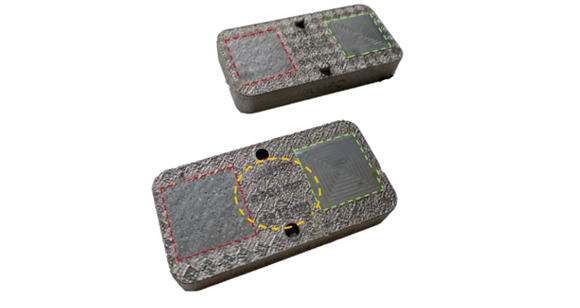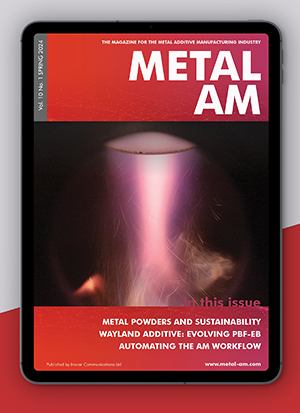Study offers insight into vibration-assisted drilling and machine hammer peening of AM parts
May 10, 2023

The Institute for Production Engineering and Photonic Technologies (IFT) at TU Wien, Austria, and research company Fotec, based in Wiener Neustadt, Austria, have confirmed through joint investigation that vibration-assisted drilling can be successfully applied to additively manufactured components to reduce cutting force by 30% compared to conventional drilling when working with martensitic steel alloys. In addition, the machine hammer peening showed effective surface smoothing and can be considered a recommended treatment for functional surfaces of additively manufactured parts.
These results were found as part of the interdisciplinary Ad-Proc-Add project where Dipl-Ing Dimitrii Nikolaev and Dipl-Ing Ismail Yavuz, under the leadership of Univ-Prof Dr Friedrich Bleicher from the IFT, investigated the energy efficiency of post-processing methods and evaluated the possibility of vibration-assisted drilling and machine hammer peening (MHP) on components produced using Additive Manufacturing.
The researchers also found that a minimum material thickness of 3.5 mm is required for freestanding surfaces of heat-treated AlSi10Mg components produced using Laser Beam Powder Bed Fusion (PBF-LB) Additive Manufacturing to avoid plastic deformation. When using a smaller impact head and a parameter set with more distant impacts, a thickness of 3 mm may be sufficient. However, components with wall thicknesses below 3 mm should not undergo MHP treatment due to the high risk of plastic deformation.
This study is said to provide important insights for developing more effective and energy-efficient post-processing methods for additively manufactured parts, as well as for optimising process parameters and material properties. These findings can assist system and service providers when developing new products with enhanced functionality and enable end-users to implement additive-subtractive process chains with higher productivity and increased economic and environmental efficiency.
The project’s final report can be obtained by writing to the Forschungskuratorium Maschinenbau (FKM) e. V at: Lyoner Str. 18, 60528 Frankfurt am Main, Germany. Further information is also available on the project website.
web.ift.tuwien.ac.at/index.php/en/home/
Download Metal AM magazine

















